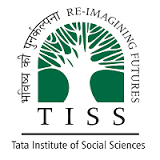This course responds to the needs expressed by practitioners and researchers to help understand deeply how assessment is to be visualised and implemented to ensure that curricular goals are met and not reduced to routine tasks. As other education policy documents, the National Curriculum Framework (NCrF) 2023 acknowledges the need to change the ‘assessment culture’ (p.17) and ensure that assessment of learning (AoL) shifts to assessment for learning (AfL) and assessment as learning (AaL) to focus on ‘core capacities and Competencies’ (p.17) and not rote memorisation. Educationists require help in selecting and/or creating a variety of reliable, valid assessment tools that suit learning situations and learning goals; reporting observations of learners; and tracking their progress that also adheres to accountability standards. This course aims to address these concerns and bring research and practice-based possibilities that can be used and tweaked by educators and develop their capacities to both source and select assessment practices. Furthermore, the course will also throw light on large-scale versus specific context (classroom-based) assessment and its impact on policy and curricula.
With the current focus on assessment and outcomes-based education (OBE), this course is especially important for teachers and leaders in the education sector. With PARAKH and such initiatives and the adoption of new boards and curriculum even in Goverment schools such as IB curricula being adopted by Brihanmumbai Muncipal Corporation schools and such the need for teachers to change their assessment and teaching practices is imperative.
Course Organisation: The course is organised around four units that engage student teachers to reflect and engage with ideas related to assessment and evaluation. An attempt is made to integrate affective experiences with the thinking and reflection on the tools that mediate assessment and evaluation. Suitable tasks within each unit enable structure experiences that unfold the variety of issues associated with the educational constructs widely used.
Unit 1: Assessment: Purposes and Contexts
This unit presents an overview of assessment and how it differs from evaluation. The unit focuses on the varied reasons for and stakeholders of assessment. Policy recommendations with respect to assessment and the varied approaches to assessment across educational boards and varied practices at both large-scale and specific assessment practices (objective, subjective, ipsative, adaptive and such) and their impact on policy, curricula and stakeholders are discussed. Distinctions between assessment of learning (AoL), assessment for learning (AfL) and assessment as learning (AaL) in the context of formative and summative assessment will be reviewed by analysing select assessment types. The need to ensure equity and map curricular objectives to assessment and teaching practices will also be reviewed in this unit. In this context, the issues of merit, privilege and standards and the need to disentangle these will be analysed using select cases.
In this unit, learners will also map their own experiences and contexts in the analysis of assessment and issues surrounding it and reflect on the relevance of adopting new technologies and assessment pathways in their context in relation to policy changes. They will trace the links between competencies, learning outcomes, teaching and assessment practices.
Readings will include a selection of curated texts (that include audio-video texts). There will be activities focused on self-reflection of prior knowledge and biases and know-how of technology and types of assessment and reporting mechanisms.
Unit 2: Reliability and Validity across Assessment Types and Tools
This unit foregrounds how assessment needs to adhere to standards and validity checks to be deemed reliable and the results valid. This unit unpacks how testing is only a component of assessment. Aspects such as inter and intra-rater reliability, content, criteria and construct validity are examined in this unit. The use of objective and subjective assessment types and others such as portfolio-based and scenario-based, ipsative and adaptive assessment will be reviewed. Another related aspect that will be examined in this unit is the use and development of checklists and rubrics and classroom observation models and mapping to taxonomies of learning to ensure reliability and validity.
Activities in this unit will involve examining select innovative, differentiated and conventional assessment practices. Learners are expected to also evaluate their own assessment tools and reflect on how these enable fairness, equity, transparency and accountability in tracking learning and competencies and scaffolding attainment.
Unit 3: Practical and Ethical Considerations in Assessment
This unit builds on Unit 2 and focuses on systems thinking as a way forward through deliberations on issues regarding assessment at various levels and across different education systems. Frequency and periodicity of assessment, mode of assessment and reporting, use of technology, sharing of data and the impact on teaching (including issues such as teaching to test) and school and curricula will be analysed through select case studies and situation analysis. Issues that surround large-scale assessment such as National Achievement Survey (NAS), Annual Status of Education Report (ASER) and Programme for International Student Assessment (PISA) will be analysed for their ability (or lack of) to provide reliable, valid and relevant analyses of learners’ competencies.
Feedback (‘How am I doing?’), feed-forward (‘How can I do/improve this?’) and feed-up (‘Why are we doing this?’) models will also be discussed in this unit. This unit will link to Carol Dweck’s growth mindset. Learners will be expected to identify issues in assessment and evaluate select assessment and reporting practices in particular cases and reflect on their use in their own contexts.
Unit 4: Assessment Design Principles: Binding Them All
This unit binds the learning of the earlier three units and enables learners to evaluate and design reliable and valid assessment tools, keeping in mind practical and ethical considerations and presenting an argument locating their tool among the various types, purpose and context of assessment in their chosen learning situation. Aspects of instructional design (with a focus on Universal Design of Learning (UDL) principles) in designing assessment tool mapped to modes of assessment and use of technology and learner needs introduced in this unit will also need to be addressed in the learners’ evaluation and design of assessment.
Activities in this unit will include an evaluation of a select assessment (not designed by the learner) on the above-stated criteria and tweaking or creating an assessment mapped to a learning context with robust feedback mechanisms in place including self and peer reviews and the use of rubrics and checklists.


